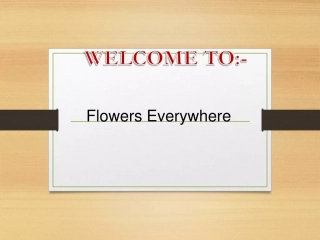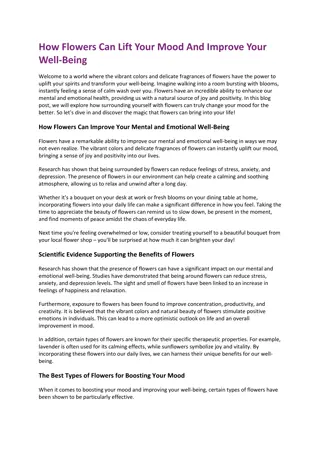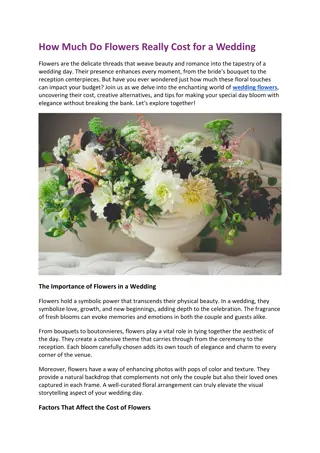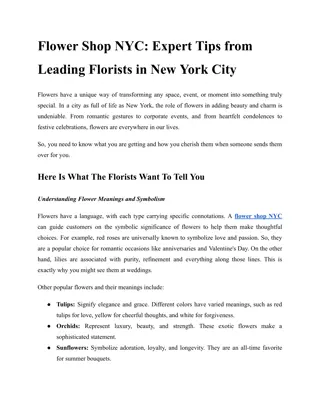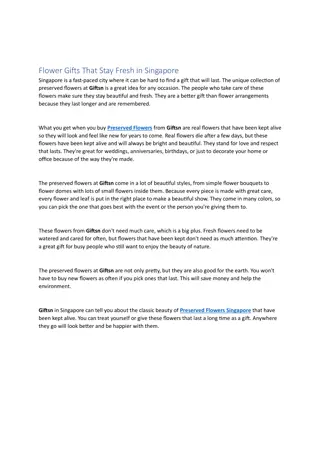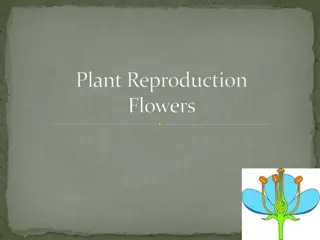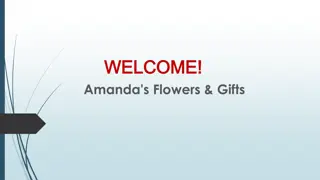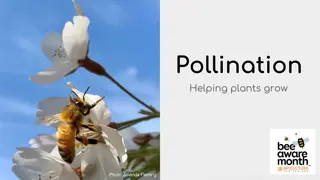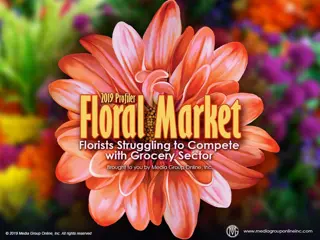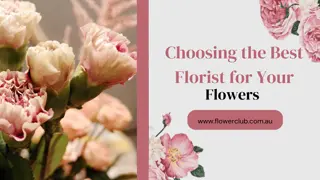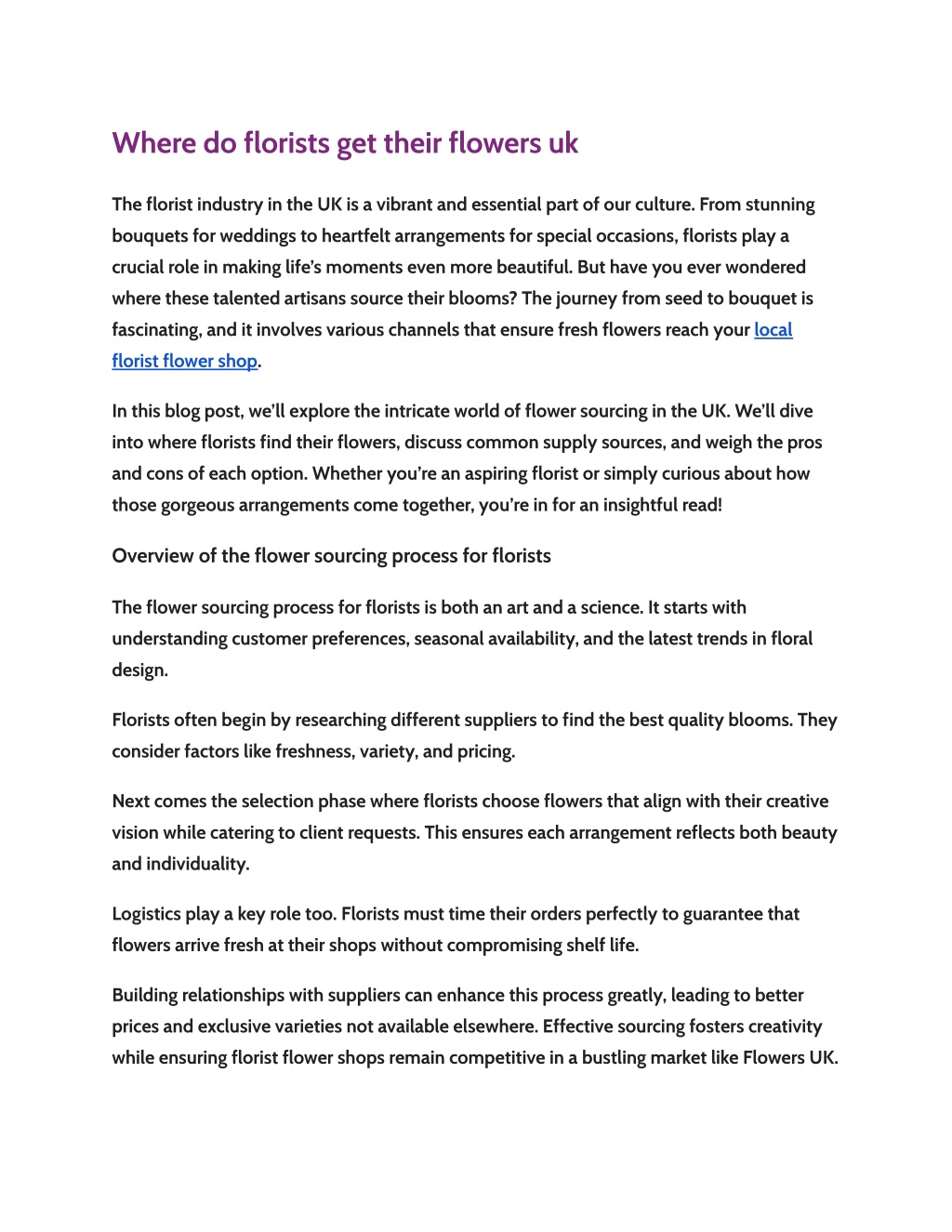
Where do florists get their flowers uk
Sustainable sourcing is becoming increasingly vital in todayu2019s florist industry. As consumers grow more conscious of their environmental impact, florists must respond by prioritizing eco-friendly practices. Sourcing flowers UK from sustainable f
Download Presentation

Please find below an Image/Link to download the presentation.
The content on the website is provided AS IS for your information and personal use only. It may not be sold, licensed, or shared on other websites without obtaining consent from the author. Download presentation by click this link. If you encounter any issues during the download, it is possible that the publisher has removed the file from their server.
E N D
Presentation Transcript
Where do florists get their flowers uk The florist industry in the UK is a vibrant and essential part of our culture. From stunning bouquets for weddings to heartfelt arrangements for special occasions, florists play a crucial role in making life s moments even more beautiful. But have you ever wondered where these talented artisans source their blooms? The journey from seed to bouquet is fascinating, and it involves various channels that ensure fresh flowers reach your local florist flower shop. In this blog post, we ll explore the intricate world of flower sourcing in the UK. We ll dive into where florists find their flowers, discuss common supply sources, and weigh the pros and cons of each option. Whether you re an aspiring florist or simply curious about how those gorgeous arrangements come together, you re in for an insightful read! Overview of the flower sourcing process for florists The flower sourcing process for florists is both an art and a science. It starts with understanding customer preferences, seasonal availability, and the latest trends in floral design. Florists often begin by researching different suppliers to find the best quality blooms. They consider factors like freshness, variety, and pricing. Next comes the selection phase where florists choose flowers that align with their creative vision while catering to client requests. This ensures each arrangement reflects both beauty and individuality. Logistics play a key role too. Florists must time their orders perfectly to guarantee that flowers arrive fresh at their shops without compromising shelf life. Building relationships with suppliers can enhance this process greatly, leading to better prices and exclusive varieties not available elsewhere. Effective sourcing fosters creativity while ensuring florist flower shops remain competitive in a bustling market like Flowers UK.
Common sources of flowers for florists in the UK: Florists in the UK have a variety of sources for their blooms, each with unique characteristics. Local flower markets are vibrant hubs where florists can find fresh, seasonal flowers. These markets often feature a wide selection from local growers and enable florists to choose directly what they want. The atmosphere is buzzing with creativity, making it an inspiring place for any florist. Wholesale suppliers offer convenience and bulk purchasing options. They stock a vast array of flowers from different regions, sometimes even internationally. This source allows for cost savings but may lack the same freshness as local markets. Some florists opt to connect directly with flower farms. This approach fosters strong relationships while ensuring that they receive high-quality blooms straight from the source. It also opens doors to unique varieties not commonly found elsewhere. Each sourcing option presents its own mix of benefits and challenges tailored to individual florist needs. A. Local flower markets Local flower markets are vibrant hubs where florists source their blooms. These markets bring together growers, wholesalers, and passionate floral enthusiasts. Shopping at a local market allows florists to select from an array of fresh flowers. Each stall often showcases unique varieties that may not be available elsewhere. This diversity can inspire creative arrangements for customers seeking something special. Moreover, purchasing locally supports nearby growers and reduces transportation costs and carbon footprints. It fosters a sense of community within the florist industry while promoting sustainable practices.
However, these markets can also present challenges. Limited availability depending on seasonality might restrict choices for specific events or holidays. Additionally, competition among other buyers can drive up prices unexpectedly. Navigating local flower markets requires both skill and intuition to strike the best deals while ensuring quality remains uncompromised. The experience is as much about relationships as it is about sourcing stunning blooms. B. Wholesale flower suppliers Wholesale flower suppliers play a crucial role in the florist industry across the UK. They provide an extensive range of blooms at competitive prices, making them a go-to source for many florists. These suppliers often have strong connections with growers worldwide. This allows them to offer exotic varieties and seasonal flowers that might not be available locally. A diverse selection can elevate any florist's offerings. However, quality can vary significantly among wholesale suppliers. It's essential for florists to establish partnerships with reputable companies known for their fresh products. Ordering in bulk is another advantage of working with wholesalers, as it helps reduce costs per stem while ensuring you always have stock on hand. Frequent deliveries also allow florists to keep their inventory fresh and appealing to customers seeking beautiful arrangements. C. Directly from flower farms Direct sourcing from flower farms offers florists a unique advantage. It allows direct access to fresh blooms, often straight from the field. This means longer vase life and vibrant colors for arrangements. Many florists in the UK build relationships with local or international flower growers. This connection can lead to exclusive varieties that aren t available elsewhere. When you know your grower, you can also gain insights into seasonal flowers and best-sellers.
However, there are challenges too. Managing logistics can be complex, especially if dealing with overseas suppliers. Florists need to think about timing and transportation costs when sourcing directly. Despite these hurdles, the benefits of freshness and quality make this option appealing for many florist businesses seeking uniqueness in their offerings. Advantages and disadvantages of each source Local flower markets offer freshness and variety. Florists can find seasonal blooms that reflect current trends. Building rapport with local growers is another perk, fostering community ties. However, prices can fluctuate based on availability. This unpredictability may challenge budgeting for florists who rely heavily on market sourcing. Wholesale flower suppliers provide consistency in stock and pricing. They often have a broader selection of flowers available year-round, making them reliable partners for busy florist shops. On the downside, quality can sometimes be inconsistent due to mass production methods. Additionally, the shipping distance might affect freshness upon arrival. Directly purchasing from flower farms ensures high-quality blooms at their freshest state. It also allows florists to support sustainable practices directly through their choices. Yet this option might require more effort in establishing relationships and logistics management. The higher costs associated with farm-to-florist purchases could deter some businesses from pursuing this route. How to choose the best source for your florist business When selecting the best source for your florist business, consider quality first. Freshness is key to ensuring customer satisfaction.
Evaluate the reliability of suppliers. A dependable partner will deliver consistently and on time, minimizing disruptions in your operations. Pricing matters too. Compare costs from different sources but remember that cheaper doesn't always mean better. Balance price with quality. Think about sustainability. Many customers appreciate eco-friendly practices, so sourcing local or organic flowers can enhance your brand image. Assess variety. Having access to a diverse range of blooms allows you to offer unique arrangements that set you apart from competitors. Look for suppliers who can meet your creative needs throughout the seasons. Tips for building relationships with suppliers Building strong relationships with suppliers can significantly enhance your florist business. Start by communicating openly and honestly. Share your needs, preferences, and any concerns you might have. Regular visits to their facilities or markets help establish trust. These face-to-face interactions foster a sense of partnership beyond mere transactions. Always pay on time. It shows respect for their work and encourages them to prioritize your orders in the future. Consider providing feedback about the quality of flowers you receive. Suppliers appreciate constructive input as it helps them improve their offerings. Participate in local flower events or trade shows where vendors gather. Networking at these gatherings strengthens ties within the industry while exposing you to new products and trends. Don t hesitate to express gratitude for excellent service or quality blooms. A simple thank-you can go a long way in cultivating lasting partnerships. Conclusion
Sustainable sourcing is becoming increasingly vital in todays florist industry. As consumers grow more conscious of their environmental impact, florists must respond by prioritizing eco-friendly practices. Sourcing flowers UK from sustainable farms not only supports local economies but also minimizes carbon footprints. Choosing suppliers who prioritize sustainability can enhance a florist's brand image and customer loyalty. It shows dedication to responsible practices that go beyond just selling beautiful arrangements. By promoting ethically sourced flowers, florists contribute positively to the environment while meeting customer expectations. Building relationships with sustainable growers and suppliers creates opportunities for collaboration and innovation within the floral community. When florists commit to sustainable sourcing, they help pave the way for a greener future in the flower industry one bloom at a time. Visit- https://www.elisanaflorist.co.uk/

